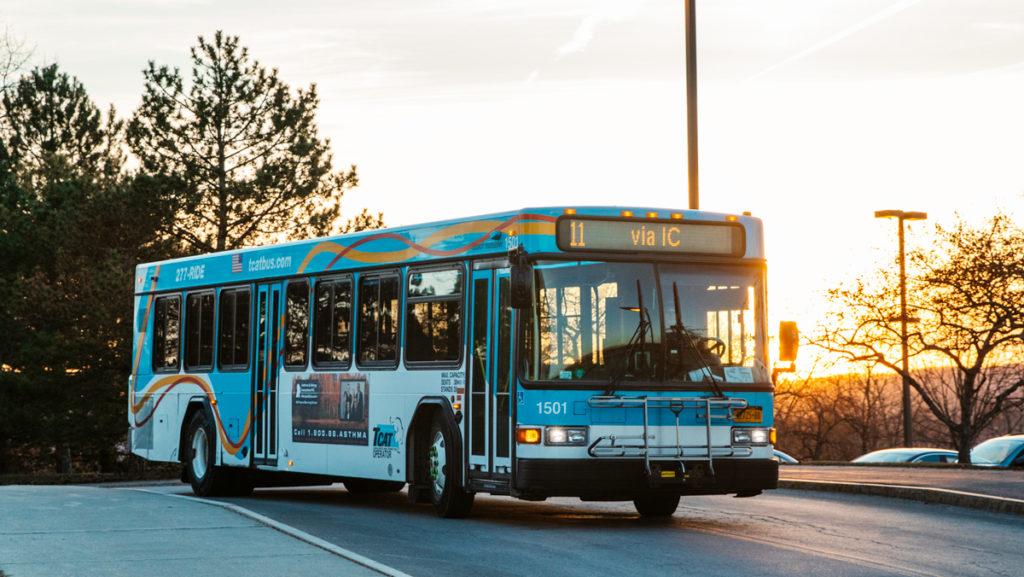The Tompkins Consolidated Area Transit (TCAT) canceled a number of trips on high–frequency routes throughout March due to an aging fleet of buses and other complications.
TCAT said it has largely resolved the underlying issues and does not anticipate many more cancellations as a result of those problems going forward. Scot Vanderpool, general manager TCAT, said a combination of mechanical problems, a shortage of buses and a new mechanical manager, who was settling into the position during a busy time for TCAT, put extra work on an already understaffed group of mechanics and caused cancellations on Routes 10, 30 and 82. More specifically, some buses were being inspected, and new buses the TCAT ordered had not come in yet. The Route 11 bus that goes to Ithaca College was not affected.
Vanderpool said 12 of TCAT’s 53 buses have been on the road for 12 years — the maximum amount of time allowed by the Federal Transit Administration. Federally funded transit agencies like TCAT are required to use their buses for at least 12 years before they can ask the federal government for more money to replace them.
Buses can be used longer than 12 years as long as they pass stringent safety inspections that are performed by the Federal Transit Administration. The buses are still considered safe, but because of their old age, the repairs require more time and the inspections can take up to two weeks.
Patty Poist, communications and marketing manager of TCAT, said the staff at TCAT has worked hard on resolving this issue. She said that the amount of missed trips in the last few weeks has been very low but that any missed trip is unacceptable.
“For perspective, it’s important to note that TCAT provides an average of 1,153 trips per weekday,” she said. “The recent worst–case scenario of 15 trips missed on a single day represents a missed trip rate of 1.3 percent. Still, a single missed trip is unacceptable to us.”
The exact number of missed trips during the month of March is currently unavailable because TCAT does not tabulate exact dates of missed trips, it only tracks trends among certain weekdays.
TCAT tried to plan ahead for this by ordering nine new replacement buses with federal money in June 2018. The buses take 18 months to order and cost $450,000 each. Earlier this year, when six of its buses started to experience mechanical failures, it ordered used buses from transit agencies in Harrisburg, Pennsylvania, and Syracuse, New York.
Vanderpool said that when deciding what routes to cancel, TCAT tries to minimize inconvenience to the public by canceling routes with buses that come every 15 minutes to allow the low–frequency routes with longer wait times to remain the same.
“When we do have to cancel trips, we do so on high-frequency routes, such as 10, 30 and 82 — routes that serve our bus stops generally within 10– to 15–minute intervals,” he said. “This is so that passengers have the option to take the next bus in a relatively short period of time.”
Vanderpool said TCAT has taken steps to resolve those issues by outsourcing some of the bus repairs to other diesel garages in the area, hiring a new maintenance manager and hiring more mechanics. He said he does not anticipate many more cancellations outside of regular occurrences like road delays and people getting sick on buses, causing biohazard concerns.
“Thanks to the efforts of our human resources team, we are no longer short with the number of mechanics on our maintenance team,” he said. “In recent weeks, we have outsourced some maintenance work to other diesel garages, which has given our maintenance team some relief. These solutions are working, and we are now getting to back to normal.”








